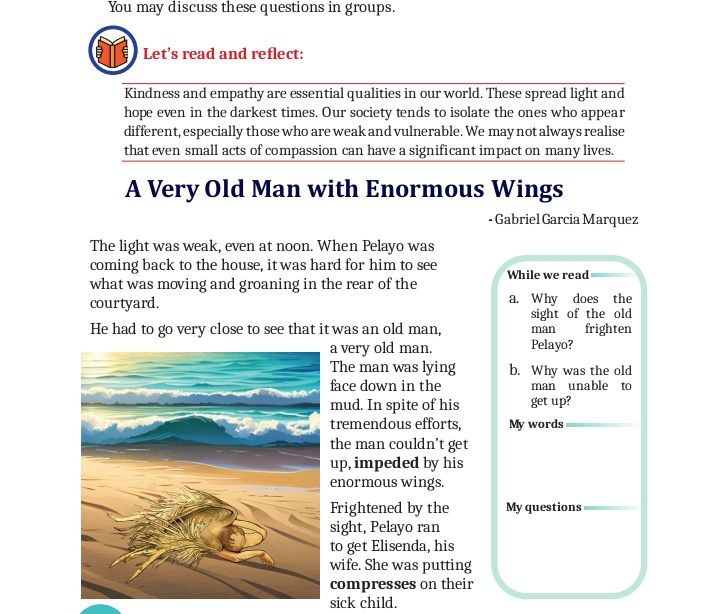IF - Notes
IF
1. The first stanza of ‘If’ speaks about the need for self-confidence. Do you agree? Why?
The first stanza of 'IF' truly deals with the need for self confidence. Crisis is a common incident in the life of a human being. Ups and downs, victories and defeats may come. But a person must face all these situations with confidence. Situations must not make us depressed.
2. What does the poet say about patience?
Patience is a virtue. It is a quality, which many people wish to have, but find it very hard to devolop. Patience requires hard effort. A person who is patient can be a good listener and a good friend. Waiting with patience can bring about good results.
3. Explain the poet’s views on honesty and fortitude of character.
Honesty and fortitude of character, are two good values in life. A perfect man must build up good character and these two values must make a foundation for him. A man must speak the truth always. He must not tell lies or talk bad about anyone. He must be strong in mental attitude, he must not be depressed when someone talk bad about him. He must "believe" In himself.
4. Never breathe a word about your loss. ’ What impression do you get about the poet when you read this?
Man likes to speak about "loss", and as a resultwe get sympathy of others. But to Kipling, a man must act mature, he must not complain always. Sometimes we put the blame of our loss on others. That too must be avoided. Rudyard Kipling is a gentleman and wants others to be like that too.
5. What is the message conveyed in the last stanza of the poem?
A set of virtues which can make a person 'a perfect gentleman' is laid down by Rudyard Kipling. A man must mingle with the crowd and still keep all good qualities. He must be truthful and honest. He must not lie or talk bad about others. This some person must keep relations with the high class or even kings, but still have common touch. He must be trusted by all men, he will be a good friend too. This man will be perfect and make use of all the time he gets - every second.
Appreciation of the Poem 'IF
A short titled poem 'IF', is one of the classics of English literature. Rudyard Kipling wrote the poem as an advice or a set of rules for being a perfect gentleman in this world. A father's love to his son, and his concern to make him a man of quality prompted him to write this poem. It is didactic and sets forth many conditions required to make a man perfect. Rudyard Kipling stresses the fact that a true man must be known by his humility and modesty. Too much heroism or wealth or fame will not make a man great.
A gentleman must have a balanced character. He should believe in himself. He should have the virtue of 'Patience'. He must wait patiently. He must not listen to lies, or even lie about anyone. He must dream but not be a dreamer. He must think and act well, and must face victory and defeat in the same manner. Others may twist his words, but he must not talk bad about them and fall into the trap. He must work hard and suffer loss with happiness, believing that he can begin from zero again. He must be one among the ordinary common man and also keep friendship with kingly persons. He must be a friend, guide and philosopher to many others. He must make use of each second he gets and contribute much to make the earth, a peaceful heaven.
The poem is in the form of an advice given by a father to his son. It is a monologue divided into four stanzas. The poet uses a lot of metaphors, personifications and symbols to express his ideas.
For example, 'Unforgiving minutes' is a metaphoric expression for time that passes away. Triumph and disaster are personified as two imposters or uninvited guests. Knaves symbolise dishonest and crooked people. The language is highly intellectual and full of meaning. The poem is highly inspiring and motivating. It leads a person to become a 'perfect man'.



Comments
Post a Comment
Please share your feedback and questions